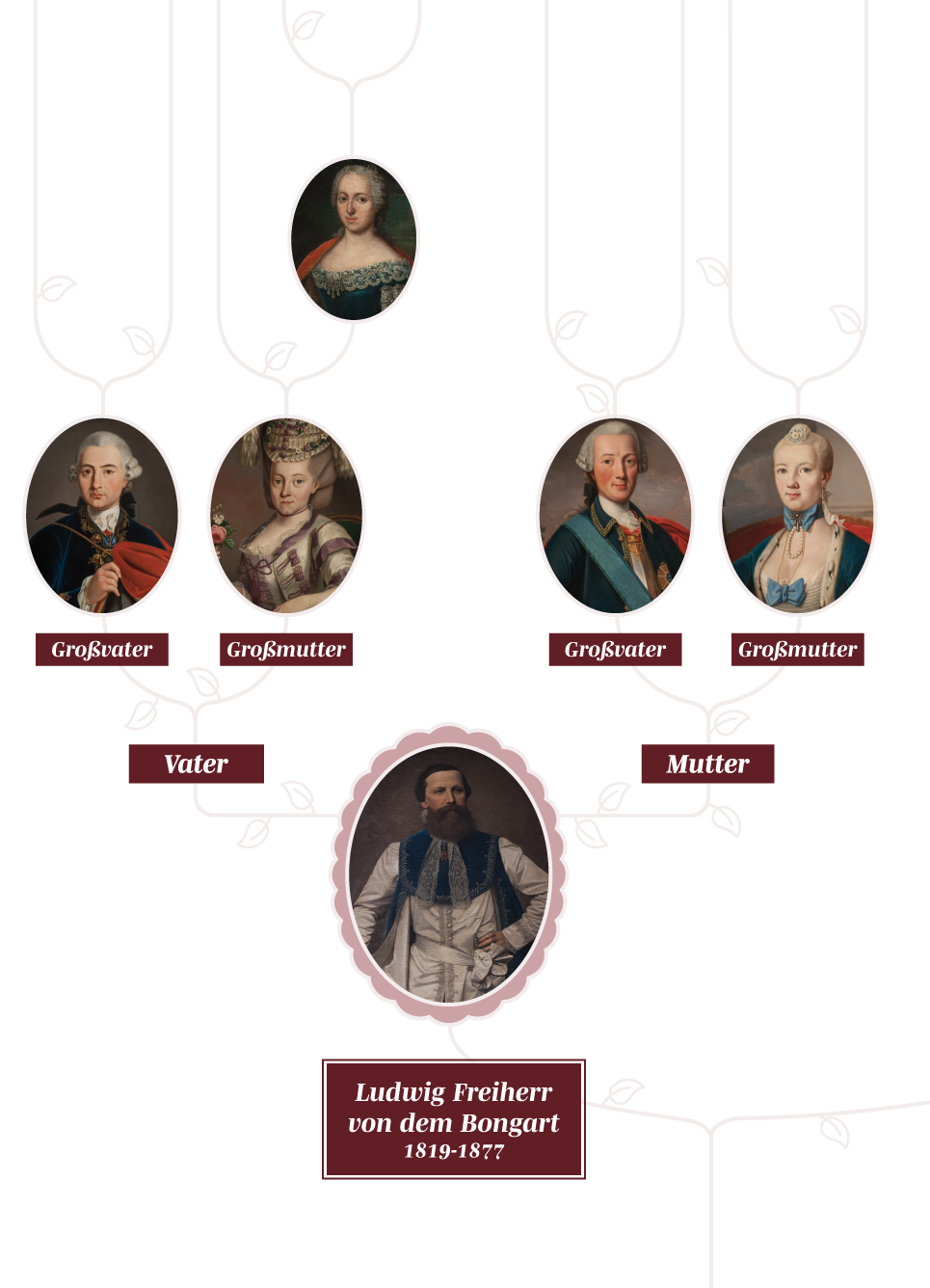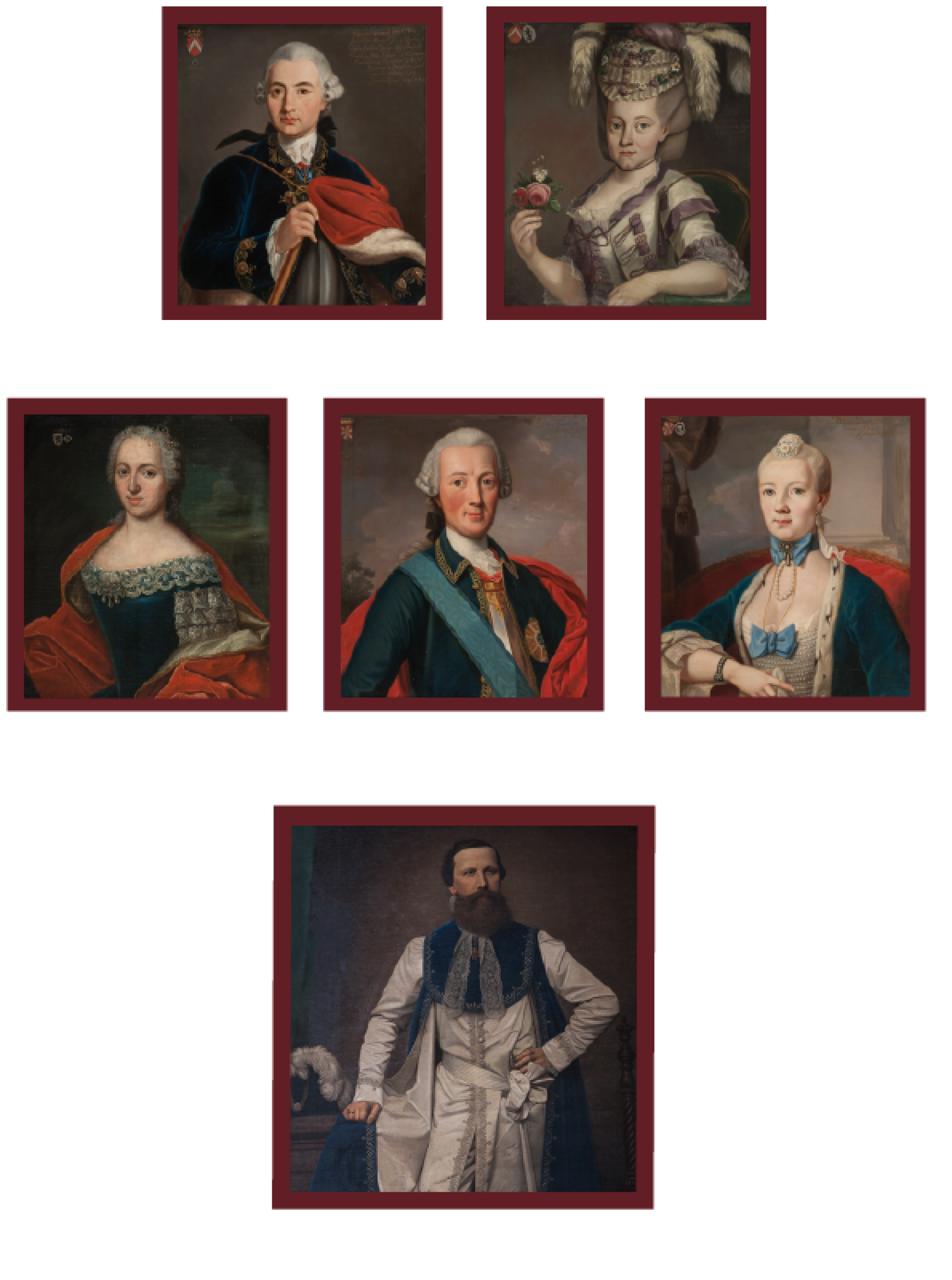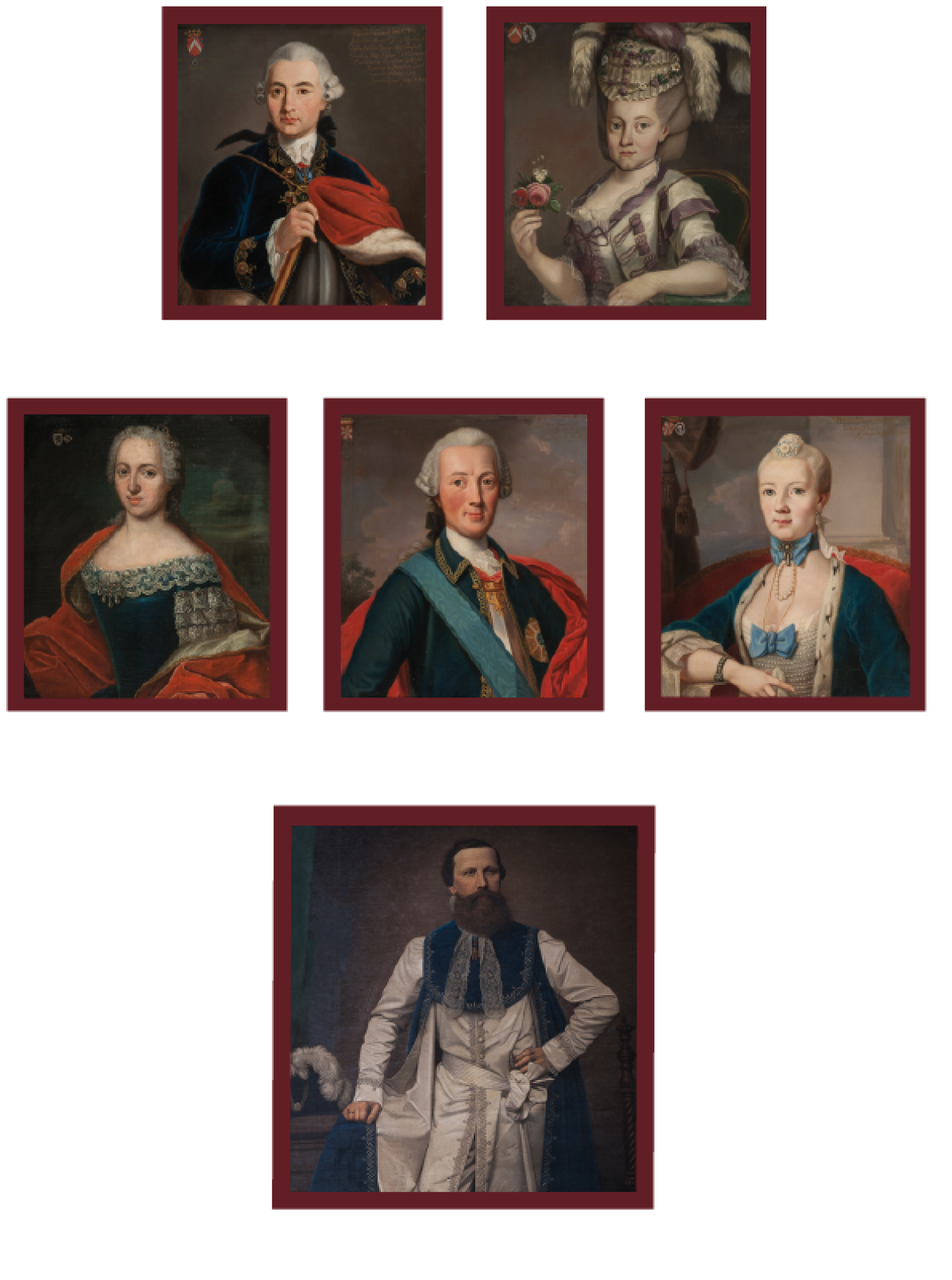Who will inherit the estate?
Her ladyship Adelgunde von Uselstein
![]()
I don’t know whether I’m coming or going. Yesterday, my beloved husband died and I am pregnant with our third child. Hopefully this time it is going to be a boy who can inherit the estate. In that event, all of us can stay. Otherwise, the children and I can only lay claim on a couple of rooms. Rather than living under such circumstances, I will move to the city and rent a house.
These little rascals!
Gertrude Löffelholz, Housekeeper
![]()
The children keep annoying the governess all day. They are totally out of control since his lordship had to give away their beloved St Bernard dog. But what else should her ladyship have requested after the dog bit the French nanny? Poor thing is in the hospital right now.
Our son is returning!
Ursula von Klagenfeld, House owner
![]()
Another year or two and my beloved son will take over the administration of the estate. I am glad that my husband and I will no longer have to take care of it. Times have changed, there’s nothing we can do about it. Our son is a student of agrarian sciences and wants to change quite a few things here. His ideas sound nuts to me! But we will probably have to support him financially anyway – hopefully, the house repairs will not eat up all of our savings before that.



